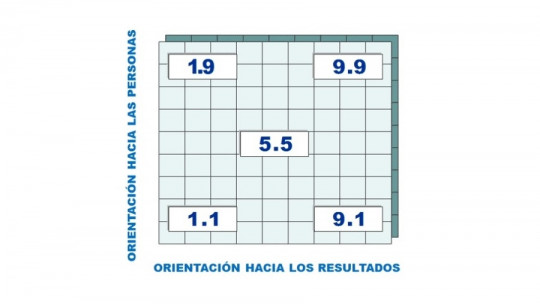Critical management studies are a set of works that draw on critical theory to formulate different ways of understanding the livelihoods and daily functioning of organizations.
In this article We will see in more detail what critical management studies are, or critical management studies where they come from and what are some of their main proposals.
What are Critical Management Studies?
Critical Management Studies are a set of works that apply critical theory in the analysis and functioning of organizations.
That is, it is a series of studies on management, organizations and work that, from a critical perspective, address social issues of relevance to these areas , such as gender, power, identity, etc. (Baleriola, 2017). Some of its main objectives are, broadly speaking, the following:
We will see below where critical management studies come from and what are some of their contributions to the management of organizations.
Critical theory applied to management
Critical theory is a current of philosophy and social sciences that was born in the mid-20th century. Establishes a break with traditional theory , based on a project of scientific objectivity typical of the natural sciences; since, beyond generating explanations or descriptions of the phenomena it studies, critical theory intends to value them under a political component omitted in traditional theory.
This theory considers that every object of research, and everyone who investigates, have been socially constructed , that is, they are found in a particular vision of the world that corresponds to a specific historical and cultural context. Consequently, people and the social sciences have a transformative potential that critical theory addresses in terms of power and domination especially.
With this, crises, debates, objects and research methodologies were opened both in social sciences and in other areas, such as in the world of work and organizations. Specifically, there was the opportunity to problematize some foundations of traditional business management, as well as its consequences on the daily activity of those who make up the organizations.
Three fundamental elements
Baleriola (2017) tells us that The contributions of critical theory to business management and the proposals that derive from this, can be summarized in the following points:
1. Criticism of technical and self-limiting positions
They question the scientific foundations and methodologies that had been transferred to the activity and management of organizations, since they ended up reducing the explanations about their functioning to variables or categories related to each other through numbers. These were far from what really happens within organizations that is, the existence of more variables, or the ability of people to interpret what others say and do, etc., was not considered.
From now on New methodologies are proposed for the analysis of organizations
2. Criticism of the power and ideology of traditional theory
Related to the above, critical management studies analyze the impact of language, implicit values and actions in interpersonal relationships, organizational culture , goals and objectives, etc. The above was omitted by the traditional theory, or was considered as a secondary element.
3. The pursuit of ideals
It is about thinking and constructing other ways of acting, that is, rethink what is taken for granted or has been naturalized within organizations From there, look for alternatives, in this case critical and with approaches on ethics.
Methodology and ethical practice
Critical management studies have the intention of carrying out in-depth analyzes of the phenomena they study. For this reason, they are based on a primarily qualitative methodology, which supports a possibility of critical choice. In other words, critical management studies make explicitly political use of the study and analysis of the phenomena that occur in organizations (Baleriola, 2017).
Some of the techniques and methodological foundations used by critical management studies are ethnography and discourse analysis, as well as the possibility of transformation at the moment of investigating the phenomenon.
In relation to this, the researcher positions himself as a tool of empowerment and finally, they analyze ethical commitment in organizational activity, which implies understanding the tensions between the demands of the organization itself and its members.
In the same sense, critical management studies criticize the traditional postulates of corporate social responsibility, which generally insist on individual responsibility, and maintain a special concern for the image they project in their immediate context.
Likewise, they problematize reductionist biases regarding ethical practice, for example, the idea that ethical responsibility is an exercise that only applies to the highest levels of the organization (Tirado and Gálvez, 2017). On the contrary, they seek make visible that individuals actively and daily constitute themselves as moral subjects which implies analyzing ethics not as a universal reality, but in the specific context in which this occurs.









